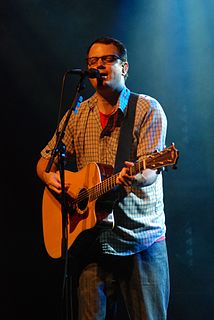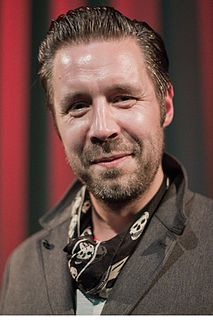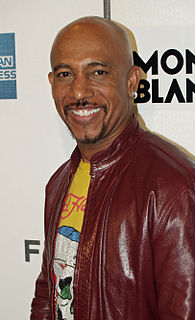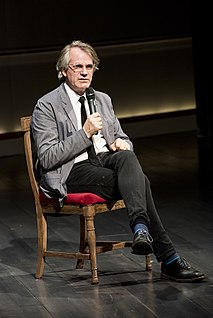A Quote by William Gibson
The future is there... looking back at us. Trying to make sense of the fiction we will have become.
Related Quotes
I guess it must be a time-of-life thing, looking back and trying to make some sense of who I am and where I've been. It's a weird thing, having to give an account of yourself, to try to make sense of yourself for yourself. I'm not that old, but I have been writing fiction professionally for a long time now. I started so young and went so hard for so long. And I guess it was about feeling I had the space to look over my shoulder.
If you're a gardener, or creating a garden you're clearly looking to the future. You have a sense of your own future and a sense of yourself in that space. People coming here feel that hope, that renewal, and that sense of regeneration. They get their hands dirty and connect back to the ground, which is what we feel strongly about - giving everybody the opportunity to get connected to the earth.
Now we cannot...discover our failure to keep God's law except by trying our very hardest (and then failing). Unless we really try, whatever we say there will always be at the back of our minds the idea that if we try harder next time we shall succeed in being completely good. Thus, in one sense, the road back to God is a road of moral effort, of trying harder and harder. But in another sense it is not trying that is ever going tobring us home. All this trying leads up to the vital moment at which you turn to God and say, "You must do this. I can't.
Ultimately, we are all products of the experiences we have and the decisions we make as children, and it remains a peculiar detail of human condition that something as precious as the future is entrusted to us when we possess so little foresight. Perhaps that's what makes hindsight so intriguing. When you're young the future is a blank canvas, but looking back you are always able to see the big picture.




































